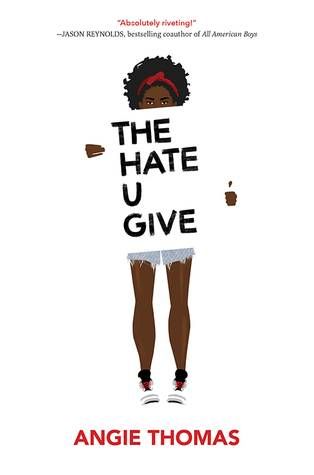
Reader Impostor Syndrome
Books are my whole deal. Between working at a bookstore for more than a decade, my English degree, my book blog, booklr, booktube channel, and—of course—writing for Book Riot, my life is centered around books. It always has been. Books have been my passion for as long as I can remember—not just reading them, but also being surrounded by them or talking about them.
I love discussing books with other people, and you’d think after studying English and writing about books for this long, I would feel confident in my reading and analyzing capabilities, but I’ve always had the nagging suspicion that despite my love of reading and discussing books…I’m not very good at it.

I’m not a great reader. I read about 100 books a year, but I remember almost nothing about any of them. (And my poor memory is not limited to books, alas.) I rarely read mysteries, because I tend to not notice clues. I miss a lot of things while reading. Unless someone’s writing is astonishingly bad, I can’t really tell good writing/craft from the mediocre or even bad. Sometimes I read reviews immediately after finishing a book and they cast the book in an entirely different light. Once I read them, it seems so obvious, but I wouldn’t never have reached it on my own.
My partner is also a reader. He doesn’t read as many books as me, but he reads them better (not that he would ever agree with me on that). He notices whether the world-building is shallow. He sees plot twists coming. We read House of Leaves during the same month: I read it in a few days and had a half-formed convoluted idea about what was going on. He read it in a month and had a simple, elegant interpretation of the entire book. All the points he brought up made total sense, and I could see them once they were pointed out, but I never noticed them at the time. I was excitedly telling him about the book I was reading and loving recently, and he told me not to tell him any more so he could read it himself. I immediately became paranoid. Is this book even any good? Will he see all the flaws I missed? Will he judge my book taste? (Spoiler: he will not. He’s lovely. I’m being ridiculous.)
I’ve been writing book reviews regularly for 7 years, but I always feel like an impostor when I’m doing it. What do I know about what makes a book worth reading? All I can offer are my own messy emotional reactions and the bits that stuck in my brain. Keeping notes while I read works better, so I don’t have to go digging through my rapidly-shrinking hazy memories.
There’s nothing wrong with reading for escapism or not reading analytically. When I choose to read a book for pure escape, I don’t worry about missing metaphorical significance or a philosophical viewpoint that was presented. But primarily, I do enjoy reading analytically. I like digging deep into a text and pulling out different interpretations of it. Unfortunately, the only stories I seem to be able to do this successfully with are ones I’ve read many times, which leaves me mostly just with Harry Potter.
I know that this is a problem of perspective. I can fight my forgetful, easily-absorbed, uncritical brain, or I let myself float through a story, writing down any insights that occur to me before they can vanish, and allow myself to supplement with other people’s reviews and discussions. Part of the fun of discussing stories with other people is that we all bring something different to the table. Each of us has our own peculiar brain, drawing its own conclusions about what is significant and what is forgettable. By bringing all of our conclusions together, we reach a much deeper, more complex understanding. (That’s not a bug: it’s a feature.)











